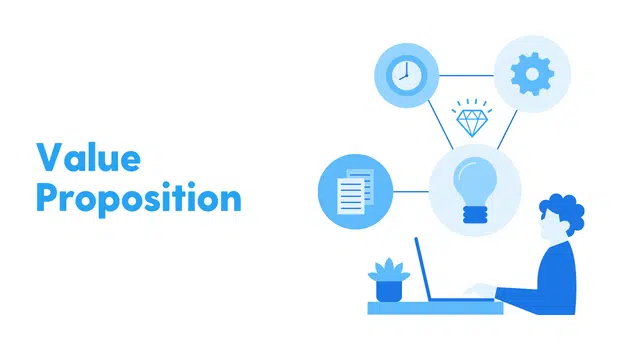Do you want to learn How To Write A Cover Letter For Internship? Writing a cover letter for an internship can be daunting. It is important to research the company and personalize the letter in order to stand out from other applicants.
For instance, take Ollie, who was applying for an internship at a tech startup. Ollie researched the company's core values and tailored his cover letter to emphasize the skills that were most relevant to the position he was applying for.
He also made sure to explain why he was passionate about the position and demonstrate how he could contribute to the company's objectives.
By researching the company, personalizing their application materials, and emphasizing their strengths and passions, applicants like Ollie can set themselves apart from other candidates looking for internships.
In this article we will discuss how to write a successful cover letter for an internship through researching the company, customizing materials, focusing on strengths, showing enthusiasm and passion as well as proofreading and editing your work before sending it off.
READ ALSO: Top Remote Jobs With No Experience
How To Write A Cover Letter For Internship

#1. Research the Company
Conducting research on the prospective employer is an important step in preparing for an application. This allows applicants to tailor their content and focus to the company's needs, as well as demonstrate their knowledge of what the organization does.
Understanding a company's goals, mission, and values can help a job applicant emphasize how his or her past experience aligns with the employer's objectives.
It is critical to read up on the specific internship's requirements and expectations so that one can explain why he or she would be suitable for it. Researching any recent news articles about the company may also prove beneficial when creating a cover letter that stands out from other applicants.
Additionally, searching social media sites such as LinkedIn, Twitter, and Instagram provides invaluable insights into topics like leadership style, team dynamics, the culture of innovation, etc., all of which are important elements to consider when applying for an internship position.
Having this information readily available helps applicants craft convincing letters that demonstrate their knowledge of the organization and their ability to contribute meaningfully.
Furthermore, it is helpful to evaluate one's skillset in comparison with those listed in the job description; doing so allows one to draw meaningful connections between his or her qualifications and what is needed by the employer.
It also helps determine how best to present oneself through writing without making false claims or exaggerations; this ensures that recruiters will recognize one's strengths without having doubts about accuracy or veracity.
Finally, researching competitors may provide a clearer picture of where an employer stands within its industry and could help narrow down potential talking points for a cover letter in order for it to be more effective overall.
As such, taking time before writing a cover letter for an internship opportunity to perform thorough research will undoubtedly benefit anyone who wishes to make a strong impression with his/her application materials. Transitioning into personalizing the letter can then occur naturally given this background knowledge.
READ ALSO: Remote Jobs For 18 Year Olds With No Experience
#2. Personalize the Letter
Through extensive research, it is estimated that 82% of employers expect to see a personalized cover letter when reviewing applications for internships.
Crafting language and tailoring content go hand-in-hand in order to make a cover letter stand out from the competition:
- Crafting language
- Use precise vocabulary and avoid cliches or buzzwords.
- Incorporate specific examples and stories related to the job.
- Tailoring content
- Address the employer's needs by relating your skills/experience back to them.
- Showcase your accomplishments with vivid descriptions rather than broad generalizations.
By personalizing a cover letter, applicants can demonstrate their knowledge of the company, their dedication towards the job, as well as their enthusiasm for contributing to its success.
This allows applicants to make an impression on the employer and present themselves as unique individuals who are capable of fulfilling the position requirements and more.
With this approach, applicants can establish a stronger connection with potential employers that will help them advance in their application process.
Transitioning into explaining qualifications is essential for conveying how one's background would be beneficial for the hiring team or organization.
#3. Explain Your Qualifications
Explaining qualifications is essential to demonstrate how one's background would be valuable in supporting the hiring team or organization. To emphasize strengths and highlight achievements, it is important to include a list of relevant qualifications that are applicable to the position.
By providing a comprehensive overview of one's skills and accomplishments, they can better illustrate why they are an ideal candidate for the role.
A table may be used to effectively organize information into three columns: Qualification, Description, and Relevance. The qualification column should contain bullet points of specific skills or experience that relate to the job posting at hand.
The description column should provide a brief explanation or elaboration on each point listed in the previous column; this could include any awards earned, classes taken, internships held, etc. Finally, the relevance column needs to explain how each skill or accomplishment is pertinent to the current job opportunity being sought after.
This exercise helps job seekers focus their attention on qualities and abilities that set them apart from other applicants while allowing them to prioritize which qualities are most important for the position being applied for.
Including such a detailed listing of qualifications demonstrates an applicant's preparedness and ability to fulfill expectations necessary for success within their desired role. Furthermore, it reinforces why they would be best suited for the internship opening as well as their commitment level towards working with their future employers if chosen for hire.
Moving forward through this guide will allow job seekers further guidance on focusing on one's strengths when writing a cover letter in order to make sure they stand out among other candidates vying for similar positions.
READ ALSO: Best IT Jobs With No Degree You Can Apply For
#4. Focus on Your Strengths
When focusing on strengths, allusion can be used to provide a vivid illustration of the applicant's unique qualifications and accomplishments.
Mentioning abilities such as problem-solving, leadership, creativity, communication, teamwork, and soft skills is important for demonstrating an applicant's potential value.
It is also critical to include specific examples of how the applicants successfully demonstrated these abilities in their previous roles. For instance, if an applicant mentions that they were able to identify and resolve complex problems while working on their last project then they should expand on this by providing some details about what the problem was and how they solved it.
Additionally, when speaking about personal qualities it is important to be honest but also highlight any areas where you stand out from other candidates. This can include talking about relevant awards or certifications that have been earned or anything else that makes you stand out from the crowd.
Being able to articulate these qualities will show employers why someone would be a great fit for their organization in comparison with other candidates who may not have had similar experiences or successes.
In order to make a lasting impression on employers it is essential for applicants to emphasize both hard skills as well as soft skills and demonstrate why their unique combination of talents makes them perfectly suited for the role being applied for.
Doing so allows applicants to showcase why they are uniquely qualified for this internship position compared with other applicants who may lack similar experiences or successes.
#5. Show Your Enthusiasm
Showing enthusiasm for the internship is essential to making a lasting impression on potential employers. It is important to emphasize interest in the opportunity by highlighting achievements and relevant experiences that demonstrate passion and commitment.
When writing a cover letter, it is important to describe why you are interested in the position, what skills and qualifications make you an ideal candidate, as well as how your experience can benefit the company.
Highlight any awards or accomplishments that show dedication, such as maintaining excellent grades or being part of a prestigious honor society. Additionally, focus on any extracurricular activities related to the field that demonstrate enthusiasm for learning and hard work; such as volunteering at a non-profit organization or taking part in an internship program.
This will provide evidence of a strong work ethic and creative problem-solving abilities which will be attractive qualities for potential employers.
Including specific examples from past experiences also allows employers to better understand how well one can handle certain tasks if chosen for the role.
These could include collaborations with other organizations or initiatives taken independently that have resulted in successful outcomes; such as addressing challenges faced by colleagues or implementing solutions with measurable results.
Providing clear evidence of how these experiences have developed into strengths can help convince recruiters that one has the necessary skillset required for success in this particular internship program.
Demonstrating passion not only helps prove why you are suitable for the role but also reflects your genuine interest in pursuing this career path – both of which will ultimately help strengthen your application and increase your chances of being selected for an interview.
READ ALSO: Jobs with History Masters | What Jobs Can I Get With A Masters Degree In History?
#6. Demonstrate Your Passion
Having demonstrated enthusiasm in the previous section, it is now important to focus on demonstrating a passion for the internship. It is essential that potential employers understand what drives and motivates an applicant.
Highlighting experiences from past internships or volunteer opportunities can illustrate a strong commitment to an area of expertise. This will emphasize dedication and genuine interest in the role.
Additionally, applicants should discuss the goals they wish to achieve by obtaining this particular internship and how those desired outcomes align with their career objectives.
In order to convey these ideas effectively, applicants should use clear language when discussing their strengths and accomplishments related to previous experience or studies. Utilizing specific examples that showcase successful results of projects or initiatives can also be beneficial in emphasizing one's qualifications for the position.
Furthermore, expressing excitement about the prospect of furthering one's knowledge within the field can indicate a passionate outlook toward work and future success.
Applicants must remember that a cover letter is not only an introduction but also serves as an opportunity to make a lasting impression on employers; therefore, it is essential that they take time to create well-crafted statements which accurately reflect their interests and ambitions as well as demonstrate their understanding of the organization's mission statement.
To ensure all content meets expectations, proofreading and editing are necessary steps in providing quality materials for review.
#7. Proofread and Edit
Before submitting a cover letter for an internship, it is essential to take time to carefully review the document, ensuring that all content is polished and conveys one's enthusiasm for the role.
To ensure the letter is professional, it is important to:
- Polish grammar and spelling mistakes
- Tailor language to highlight relevant skills and experiences
- Check formatting and visual presentation of text
When proofreading, it is helpful to read aloud what has been written in order to detect any errors or awkward phrasing that may be missed when simply reading silently.
A second set of eyes can also be beneficial when reviewing a cover letter before submission as they can offer constructive feedback on areas of improvement.
Employers often appreciate the attention to detail when evaluating applications, so taking the extra time to go over one's work can make a significant difference in making a positive impression.
#8. Follow Up
Carefully reviewing a cover letter prior to submission is essential for conveying enthusiasm and making a positive impression on employers.
It is also important to follow up with the prospective employer after sending out the application, as this shows initiative and interest in the position.
Networking opportunities should be taken advantage of as they can open doors that may not have been accessible otherwise while researching potential interview tips can help prepare an applicant for a successful outcome.
Furthermore, it is beneficial to reach out to someone who has already gone through the same process or has knowledge about the company's hiring process in order to gain insight into what steps should be taken next.
Additionally, updating one's resume and other materials such as work samples or portfolios may provide further evidence of suitability for the position being sought.
By taking these proactive steps and remaining engaged throughout the job search process, candidates are more likely to find success in their applications.
READ ALSO: Jobs For Bachelor Of Arts Degree
Frequently Asked Questions
How long should a cover letter for an internship be?
When crafting a cover letter for an internship, one should take care to ensure the document is tailored and professional.
Researching the requirements of the position at hand and tailoring content accordingly is essential in order to make a meaningful impression.
As such, the length of a cover letter for an internship should not be overly long – it should leave the reader wanting more information instead of being bogged down by unnecessary details.
To accomplish this, it is suggested that one's cover letter be succinct yet comprehensive; succinctly detailing your qualifications while ensuring all relevant information is included.
This can be done by utilizing clear organization and appropriate figures of speech throughout the document.
What should I do if I don't have any relevant experience for the internship?
When applying to an internship, it is important to emphasize one's strengths even if one does not have any relevant experience for the position.
This can be done by telling stories that demonstrate the various skills and abilities that will make them valuable addition to the team.
For example, someone without relevant experience could discuss their other experiences such as volunteer work, academic achievements, or hobbies that highlight their strengths as a potential intern.
Additionally, emphasizing transferable skills such as communication, organization, and problem-solving can help demonstrate value in a lack of direct experience.
How should I address the hiring manager in my cover letter?
When addressing the hiring manager in a cover letter for an internship, it is important to personalize content and tailor the approach.
This can be done by researching the company or role and using targeted language that reflects an understanding of their needs.
It is also important to write in a professional style that is detailed, organized, and free from errors.
To ensure maximum impact and demonstrate an interest in the position, address the hiring manager directly by name.
Should I include a resume with my cover letter?
Recent research shows that 93% of hiring managers expect a resume to accompany a cover letter when applying for an internship.
Therefore, when composing a cover letter for an internship position, it is important to include both the cover letter and the resume in order to demonstrate professionalism and competence.
Professionalism can be further demonstrated by highlighting mentoring opportunities or even salary negotiation; this will help employers identify you as serious about the position.
To ensure your application stands out from other candidates, make sure your cover letter and resume are organized, detailed, and professional.
Is it appropriate to include a salary requirement in my cover letter?
When discussing salary expectations in a cover letter, it is important to be mindful of the proper protocol and etiquette.
It is appropriate to include a salary requirement if asked for by the employer.
Negotiating compensation can be an uncomfortable and intimidating process, however, being prepared ahead of time with research on competitive salaries within the given industry can help one feel more confident when expressing their desired compensation.
When providing a salary expectation, it is wise to keep phrasing factual and direct while maintaining professionalism and politeness.
A well-crafted cover letter that includes salary negotiation can give an applicant an advantage over other candidates vying for the same position.
Conclusion
In conclusion, the cover letter for an internship should be carefully crafted to demonstrate your qualifications and passion in a succinct and organized way.
It should contain details of your experience, strengths, enthusiasm, and passion that make you well-suited for the role.
By taking the time to research the company, personalize the letter, explain your qualifications, and focus on your strengths; you can present yourself as a viable candidate.
Lastly, after proofreading and editing it is essential to follow up with the company to ensure that they have received your application materials. This technique will show employers that you are serious about applying for their position and eager to work with them.
With these tips in mind writing a successful cover letter for an internship can become an achievable goal.
Thank you for reading our article today! Please remember to share this article on social media to help others benefit too. It also helps us improve our algorithm and relevance to the public. Thanks for Sharring!!! Follow us on Socials: Facebook - LinkedIn - Twitter









